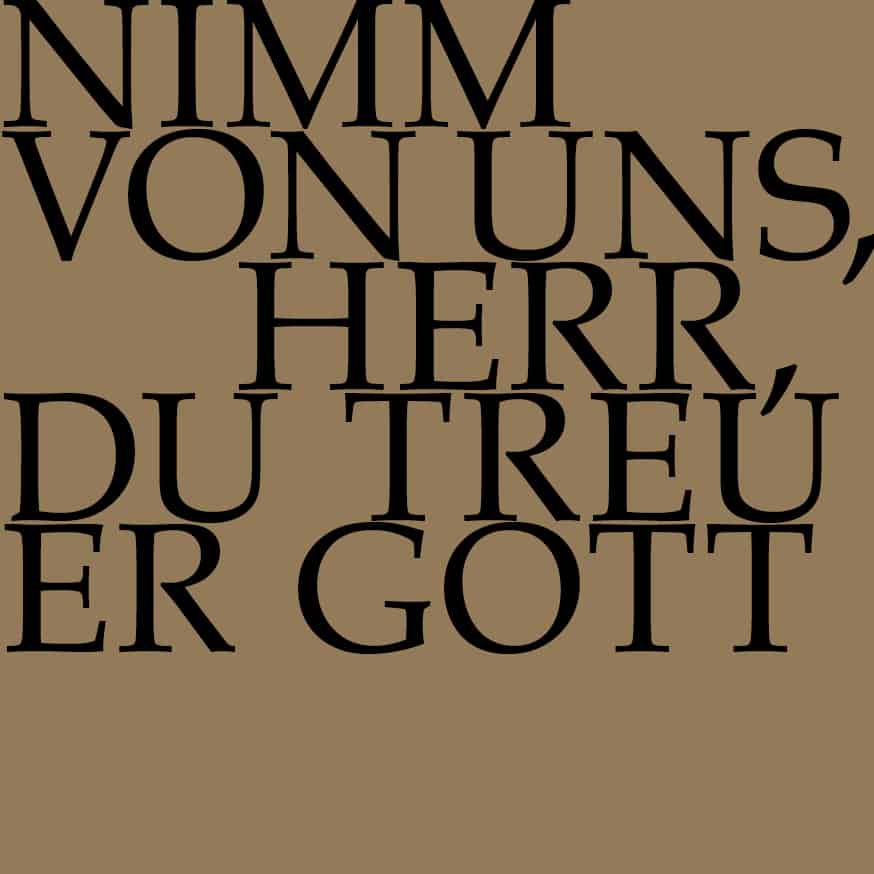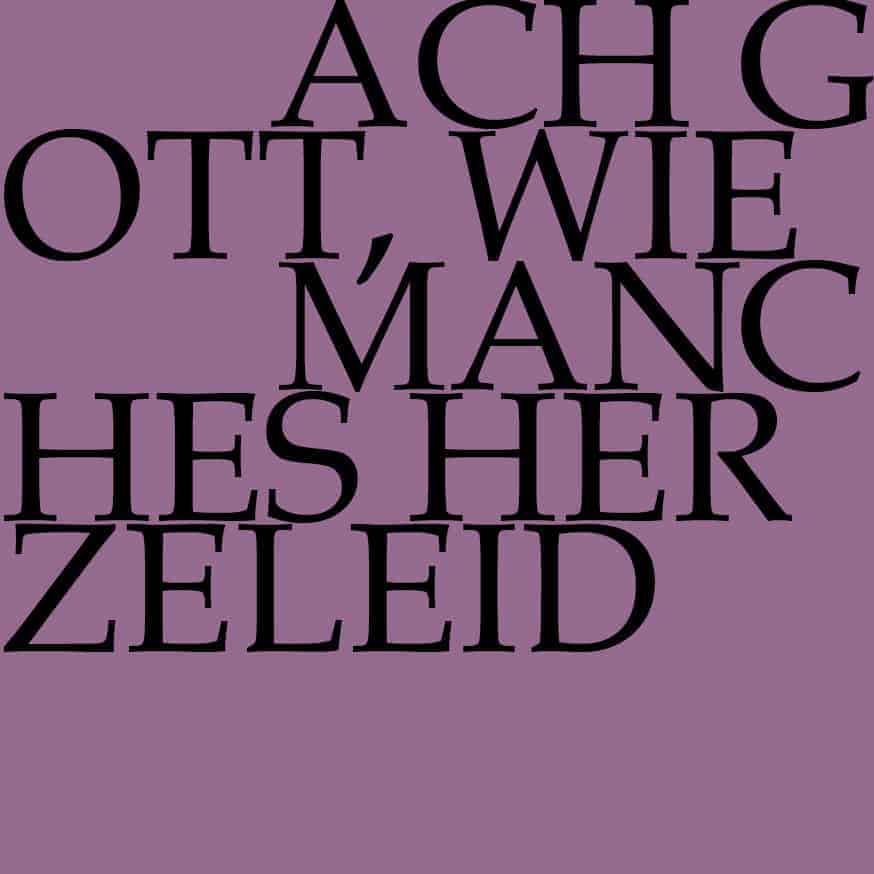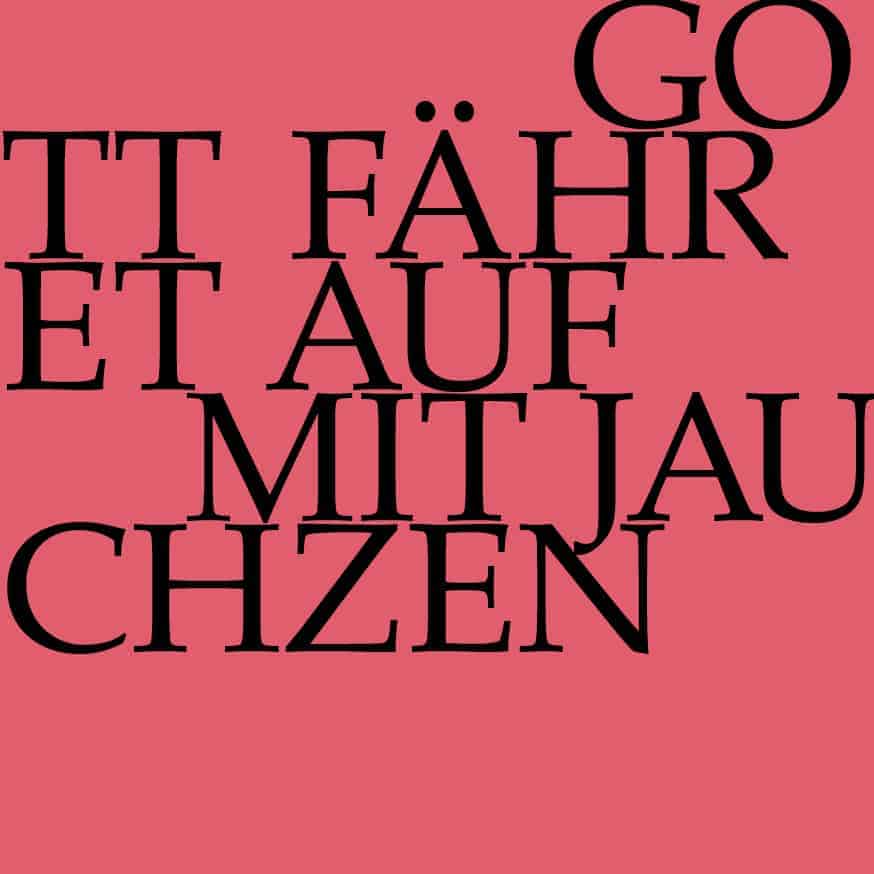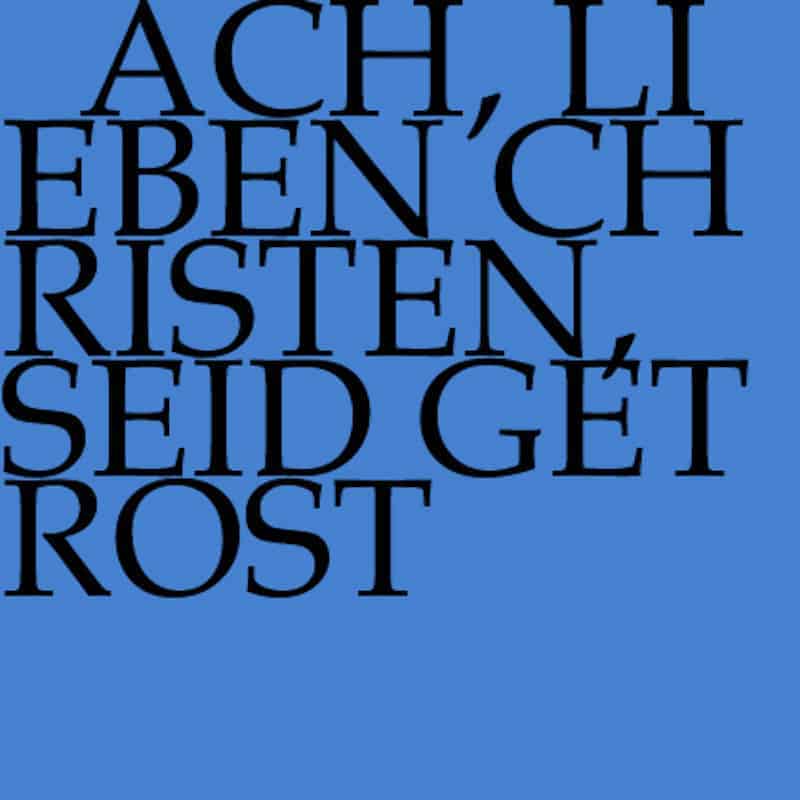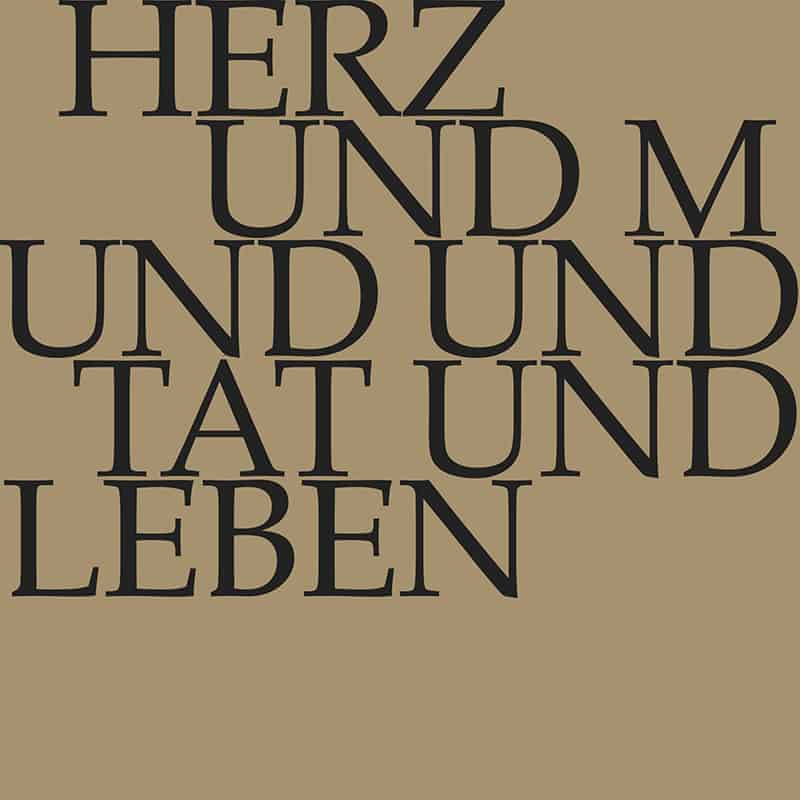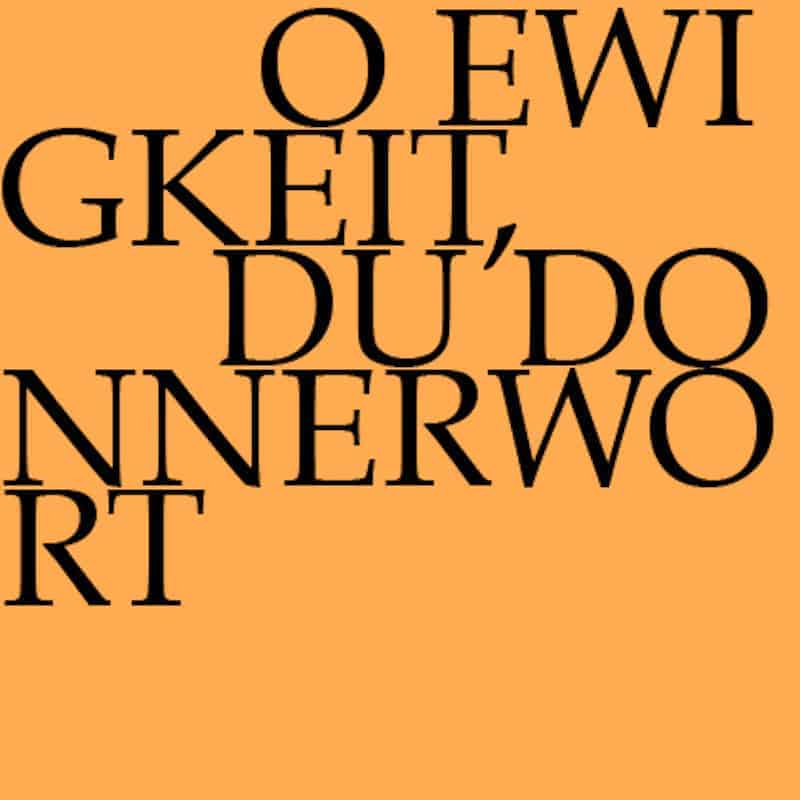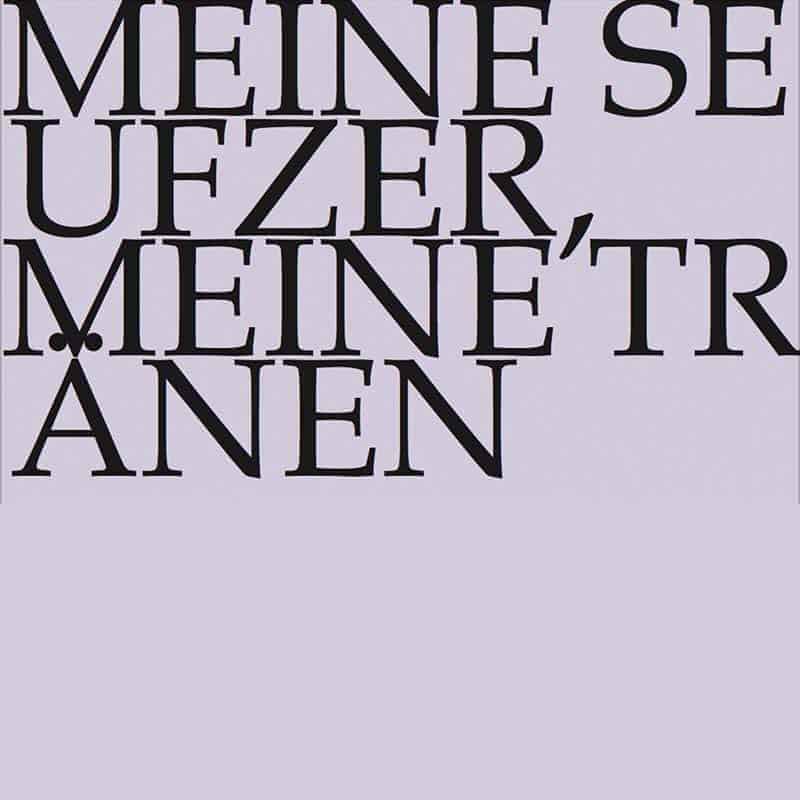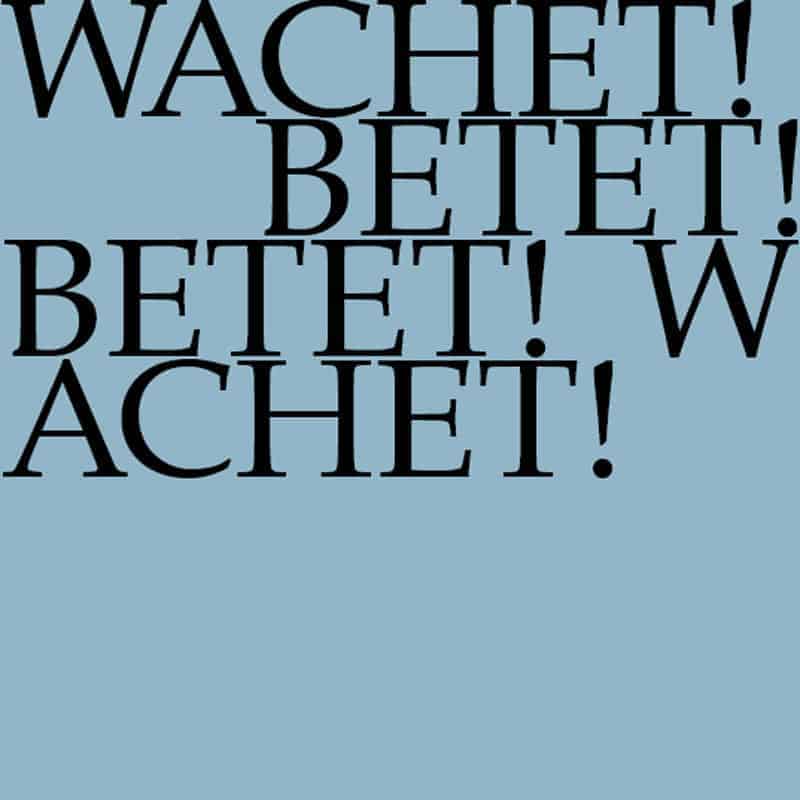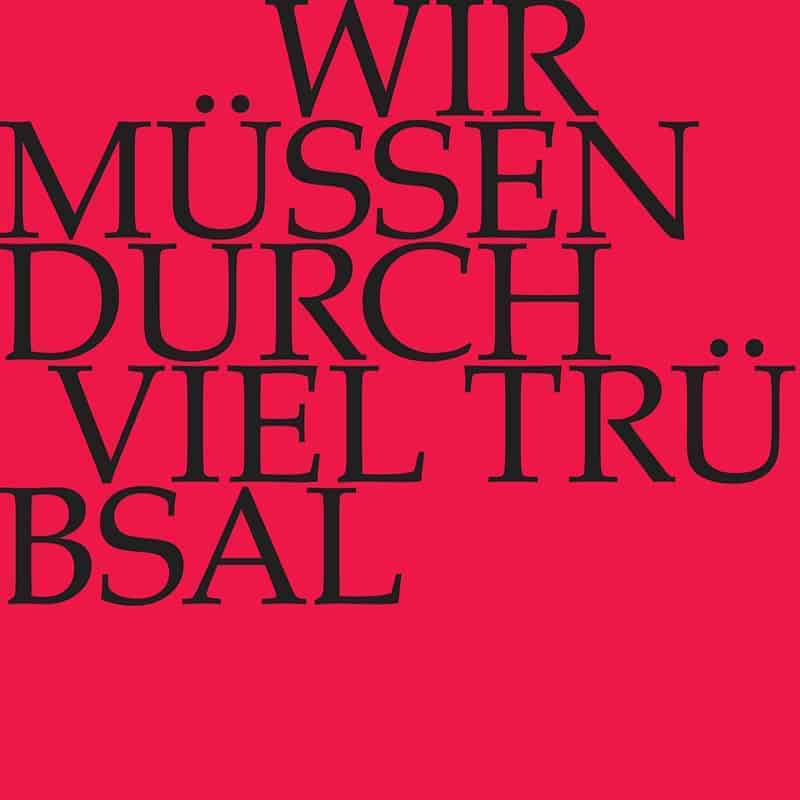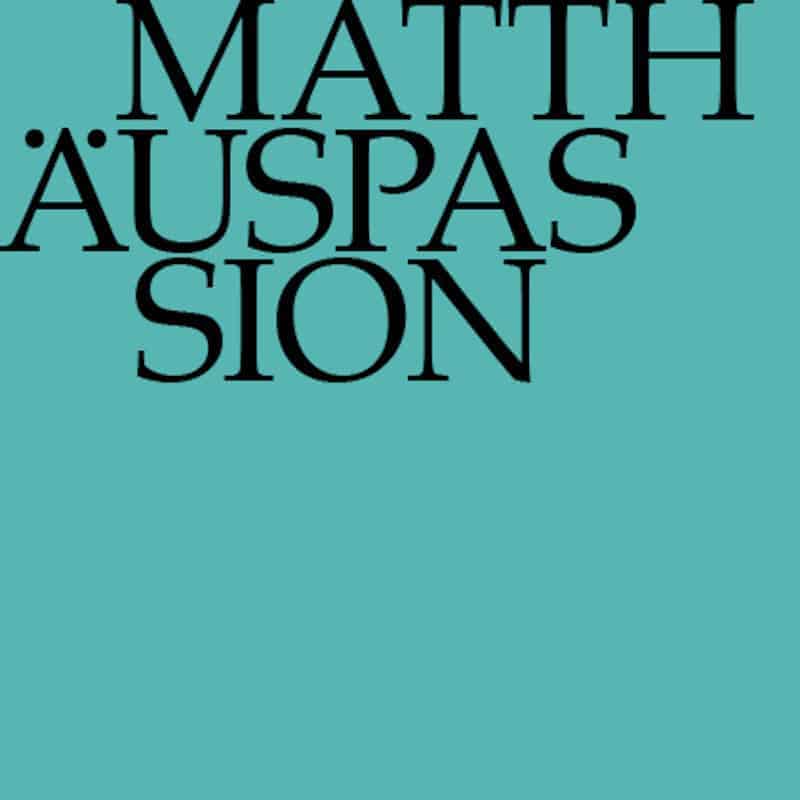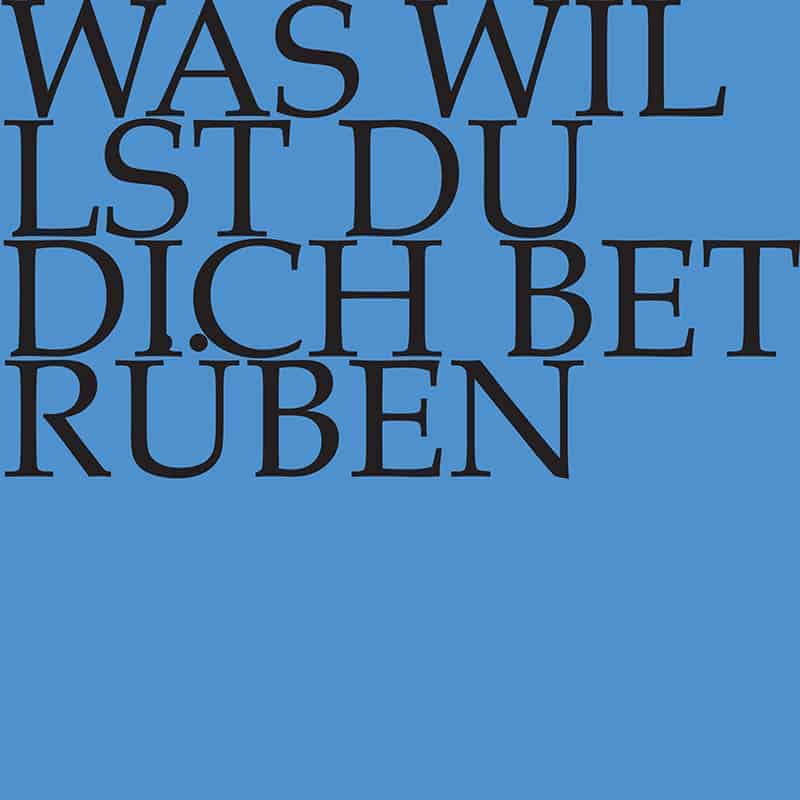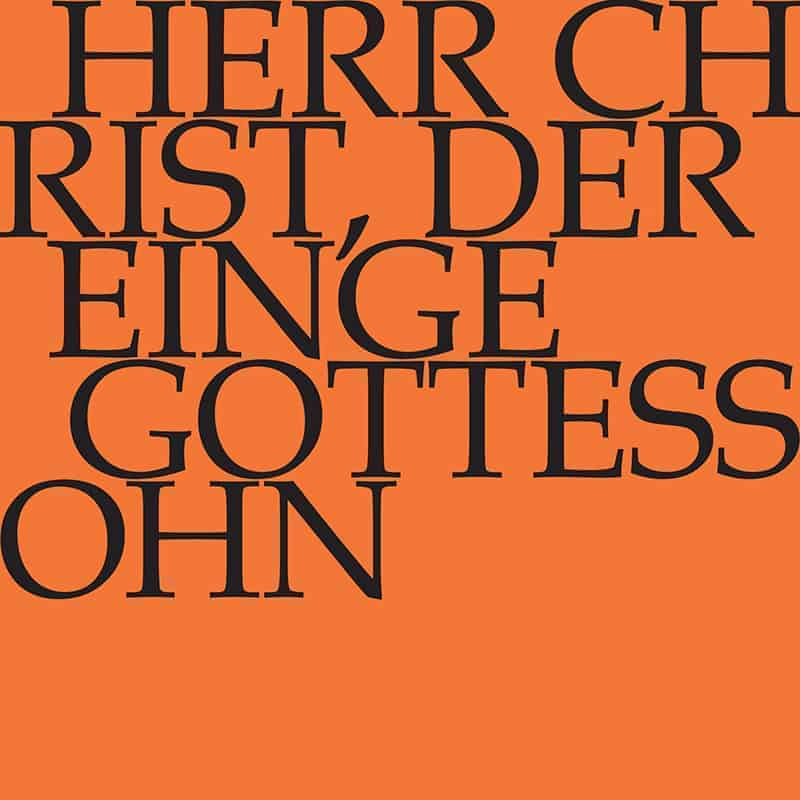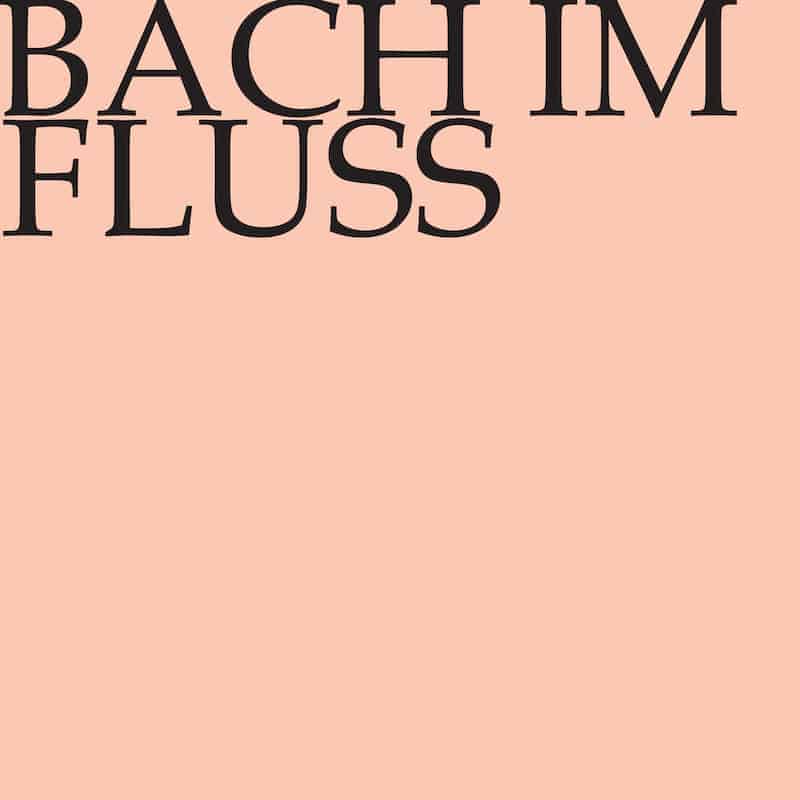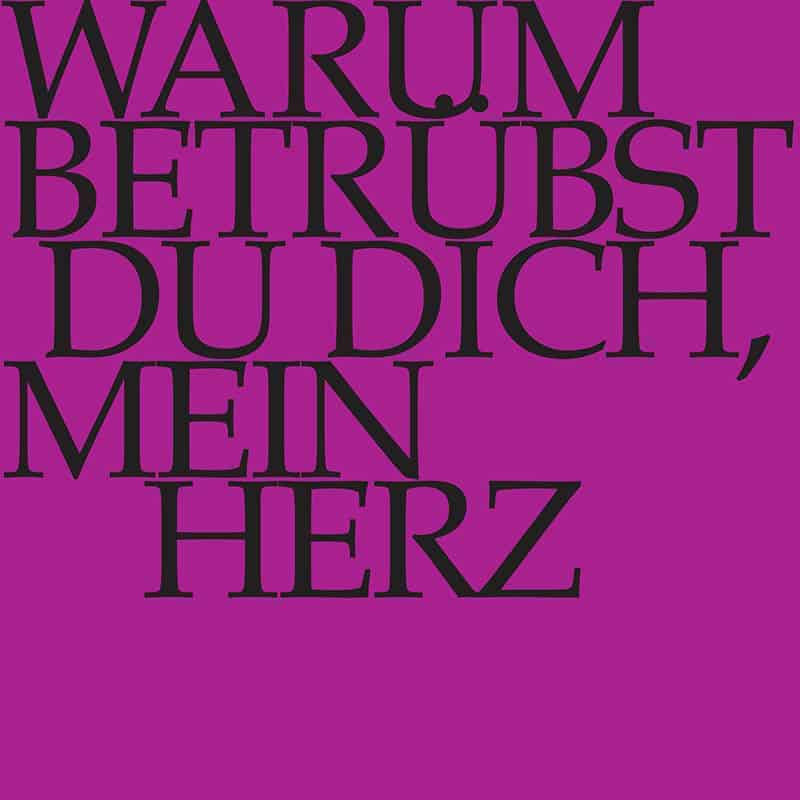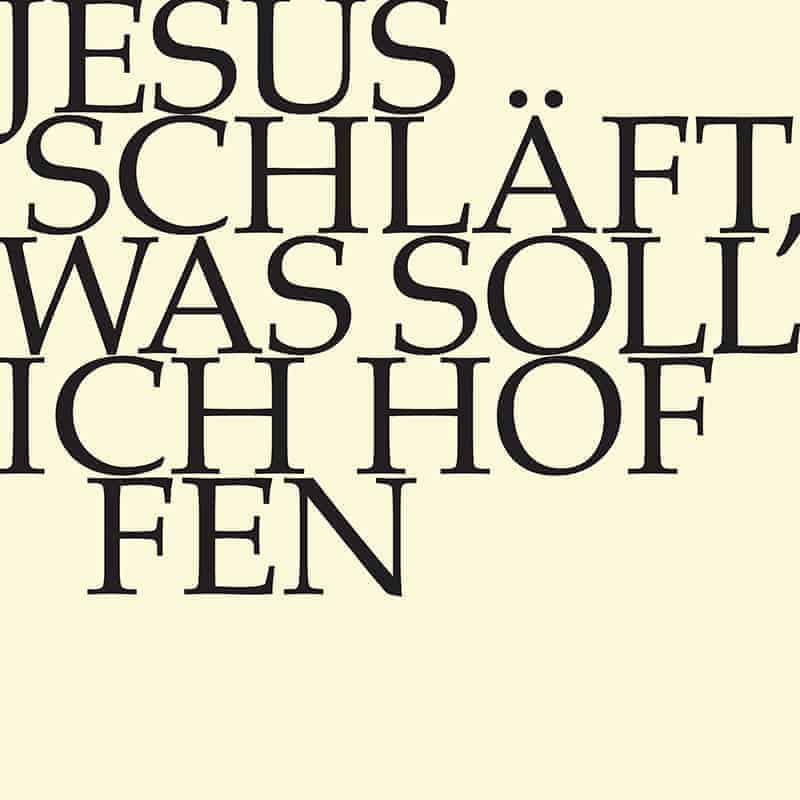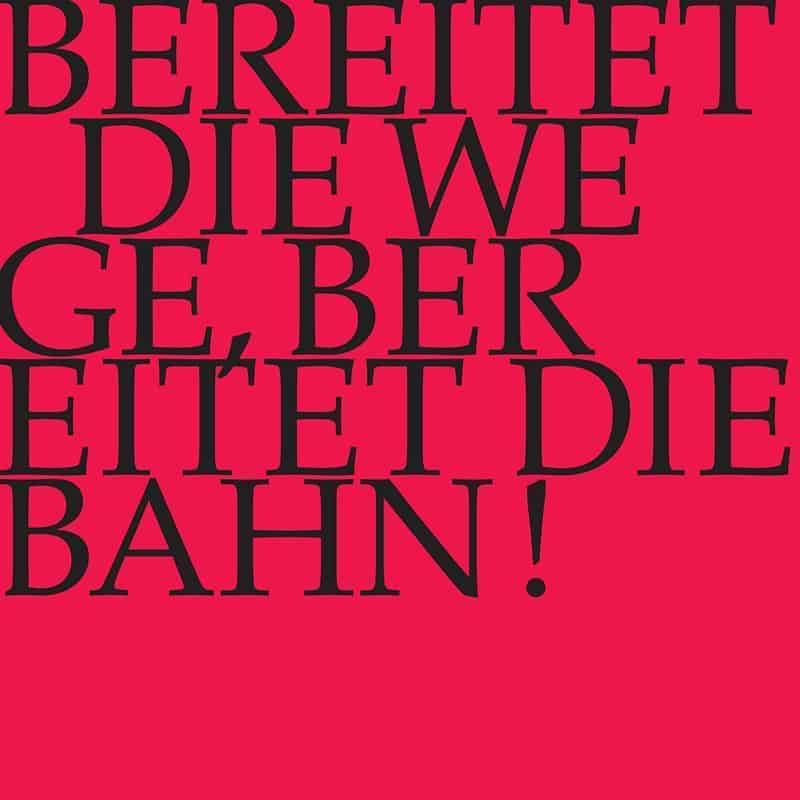(Take from us, Lord, thou faithful God) for soprano, alto, tenor and bass, vocal ensemble, cornett, trombone I–III, oboe I+II, oboe da caccia, strings and basso continuo
Archives
Ach Gott, wie manches Herzeleid
(Ah God, how oft a heartfelt grief) for the Second Sunday after Epiphany, for soprano, alto, tenor and bass, vocal ensemble, trombone, oboe d’amore I+II, strings and basso continuo
Gott fähret auf mit Jauchzen
(God goeth up with shouting) for soprano, alto, tenor and bass, vocal ensemble, oboe I+II, trumpet I-III, timpani, strings and basso continuo
Ach, lieben Christen, seid getrost
(Ah, fellow Christians, be consoled) for alto, tenor and bass, vocal ensemble, oboe I+II, flute, corno, strings and basso continuo
Herz und Mund und Tat und Leben
(Heart and mouth and deed and living) for soprano, alto, tenor and bass, vocal ensemble, tromba, oboe I+II, oboe d’amore, oboe da caccia I+II, strings and basso continuo
O Ewigkeit, du Donnerwort
(Eternity, thou thundrous word) for alto, tenor and bass, vocal ensemble, oboe I-III, tromba da tirarsi, trumpet, bassoon, strings and basso continuo Cantata BWV 20, the first work in Bach’s second Leipzig cycle, was composed in 1724 for the First Sunday after Trinity. Based on a hymn by Johann Rist (1642), the libretto explores the … Read More
Meine Seufzer, meine Tränen
(Of my sighing, of my crying) for soprano, alto, tenor and bas, flauto dolce I+II, oboe da caccia, bassoon, strings and basso continuo Cantata BWV 13 “Meine Seufzer, meine Tränen” (Of my sighing, of my crying), marked in hand on the score as a “Concerto da Chiesa”, is a work revealing and eliciting a deep … Read More
Wachet! Betet! Betet! Wachet!
(Watch ye, pray ye, pray ye, watch ye!) for soprano, alto, tenor and bass, vocal ensemble, tromba, oboe, bassoon, violoncello, strings and continuo Originally composed in Weimar for the Second Sunday in Advent, Bach reworked cantata BWV 70 in Leipzig in 1723, moving it to the 26th Sunday after Trinity and thus to the end … Read More
Weinen, klagen, sorgen, zagen
(Weeping, Wailing, Grieving, Fearing) for alto, tenor and bass, vocal ensemble, tromba, oboe, bassoon, strings and continuo
Wir müssen durch viel Trübsal in das Reich Gottes eingehen
(We must pass through great sadness that we God’s kingdom may enter) for soprano, alto, tenor and bass, vocal ensemble, transverse flute, oboe I+II, taille, bassoon, strings and continuo
Matthäuspassion
(St Matthew Passion) The double-choir St Matthew Passion, already termed the “grosse Bassion” (great Passion) in an early posthumous tribute by the Bach family, is one of Bach’s most comprehensive and significant sacred compositions.
Was willst du dich betrüben
(Why wouldst thou then be saddened) for soprano, tenor and bass, vocal ensemble, transverse flute I+II, oboe d‘amore I+II, cornett, bassoon, strings and continuo Composed for the Seventh Sunday after Trinity in 1724, all movements of the cantata “Was willst du dich betrüben” (Why wouldst thou then be saddened) are based on the hymn of … Read More
Herr Christ, der einge Gottessohn
(Lord Christ, the only Son of God) for soprano, alto, tenor and bass, vocal ensemble, trombone, flauto piccolo, transverse flute, oboe I+II, bassoon, strings and continuo Cantata 96 on Elisabeth Cruciger’s hymn “Herr Christ, der einge Gottessohn” (Lord Christ, the only son of God) opens with an introductory chorus in a style reminiscent of Christmas … Read More
Bach im Fluss
a thematic collage of selected movements from cantatas and instrumental works compiled by Arthur Godel and Rudolf Lutz
Warum betrübst du dich, mein Herz
(Why are you troubled, my heart?) for soprano, alto, tenor and bass, vocal ensemble, oboe d’amore I+II, strings and continuo
Jesus schläft, was soll ich hoffen
(Jesus sleeps, what should my hope be?) for alto, tenor and bass, (soprano in closing chorale), recorder I+II, oboe d’amore I+II, strings and continuo. The libretti set to music by Bach for the Sundays after Epiphany speak predominantly of abandonment, angst and resignation. The fundamental Christian belief in the salvation of the soul and the … Read More
Bereitet die Wege, bereitet die Bahn!
(Make ready the pathways, make ready the road!) for soprano, alto, tenor, bass, oboe, bassoon, strings and continuo. Written in 1715, Bach’s Weimar cantata for the Fourth Sunday in Advent “Bereitet die Wege, bereitet die Bahn” (Make ready the pathways, make ready the road!) BWV 132 is scored primarily for four voices, strings and continuo. … Read More


